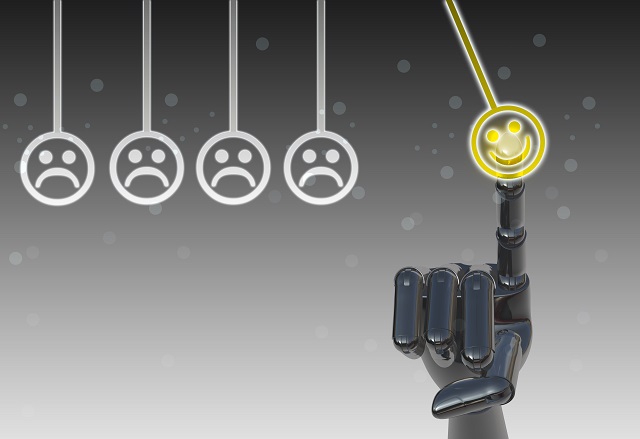
Credit: fatido / Getty Images
We’ve all got friends — hundreds of them, if you believe what Facebook’s telling you — but many of us are still worried about being lonely. So worried that it might be surprising to learn that hundreds of years ago, being alone was considered a virtue. But according to Susan Matt and Luke Fernandez, both professors at Weber State University, how we view emotions is changing all the time.
Matt and Fernandez, authors of “Bored, Lonely, Angry, Stupid: Changing Feelings about Technology, from the Telegraph to Twitter” explain how technology influences the way we see loneliness, boredom, and a whole host of other emotions.
Three Takeaways:
- Solitude used to be regarded as a way to connect to the divine, not a sign of being a social outcast, according to Matt and Fernandez. So what caused the change? They argue that as our ability to communicate improved - with inventions like the telegraph, television and social media - we’ve felt increasingly compelled to be surrounded by stimulation, which often causes us to feel even lonelier.
- As the role of religion has waned in the lives of many Americans, and the influence of tech has grown, we’ve come to believe that our own power is vast (rather than small and meek, as preachers once argued). Fernandez and Matt say that this has led us to overestimate our abilities; for example, we think we can do everything at once (which, according to the research, is a myth), be connected all the time, and have hundreds of friends. Matt and Fernandez believe that these unrealistic expectations feed into our feelings of loneliness and boredom.
- The industrial revolution led to the development of repetitive jobs, particularly with the advent of the assembly line. Matt and Fernandez argue that, around this time, people’s tolerance for boredom plummeted, leading to a greater demand for entertainment. In today’s world, with nearly limitless content to consume, they say that this demand has created an oversupply of instant gratification, potentially impacting our ability to focus and make long-term decisions.
More reading:
- Author Nicholas Carr wrote this article exploring how the internet has changed the way we think, and whether it’s making us dumber.
- Want to know more about actress Yvette Vickers and her experience with loneliness? Check out the Atlantic’s article about her, and why social media has been making us even more lonely.
- Thomas Jefferson wrote to his daughter Martha about how dangerous “ennui” can be, and what she should be doing instead to fill her time. Read the letter here.

